Jewel Spears Brooker Quotes & Sayings
Enjoy the top 7 famous quotes, sayings and quotations by Jewel Spears Brooker.
Famous Quotes By Jewel Spears Brooker
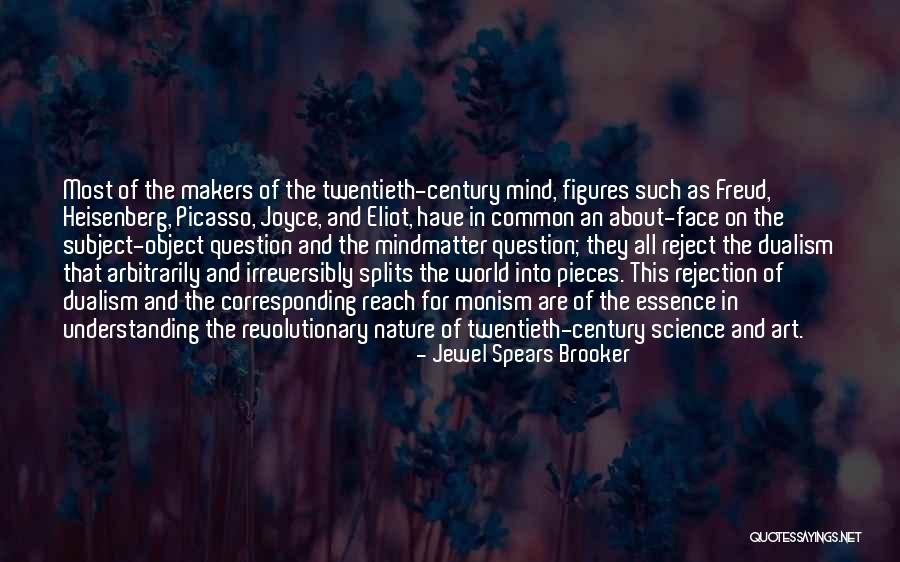
Most of the makers of the twentieth-century mind, figures such as Freud, Heisenberg, Picasso, Joyce, and Eliot, have in common an about-face on the subject-object question and the mindmatter question; they all reject the dualism that arbitrarily and irreversibly splits the world into pieces. This rejection of dualism and the corresponding reach for monism are of the essence in understanding the revolutionary nature of twentieth-century science and art. — Jewel Spears Brooker
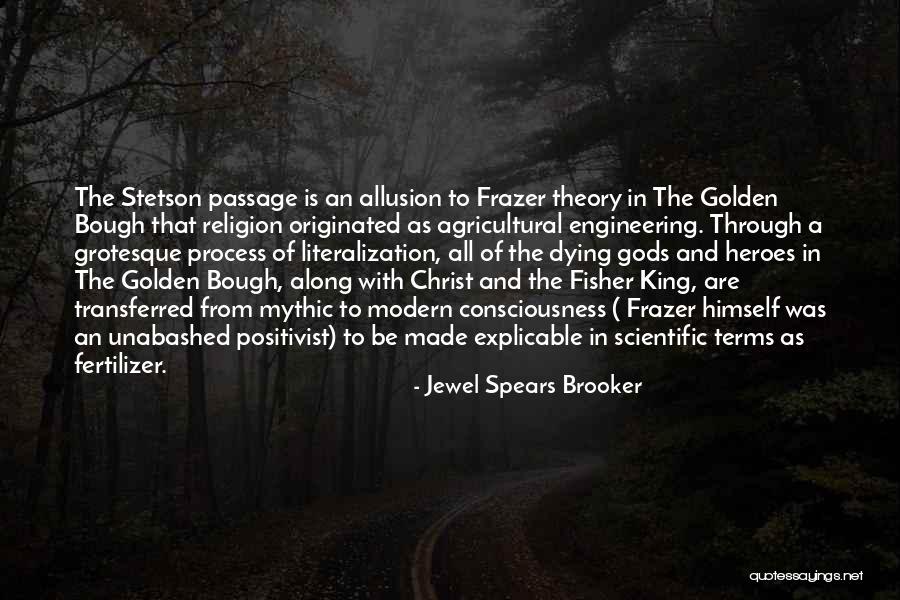
The Stetson passage is an allusion to Frazer theory in The Golden Bough that religion originated as agricultural engineering. Through a grotesque process of literalization, all of the dying gods and heroes in The Golden Bough, along with Christ and the Fisher King, are transferred from mythic to modern consciousness ( Frazer himself was an unabashed positivist) to be made explicable in scientific terms as fertilizer. — Jewel Spears Brooker
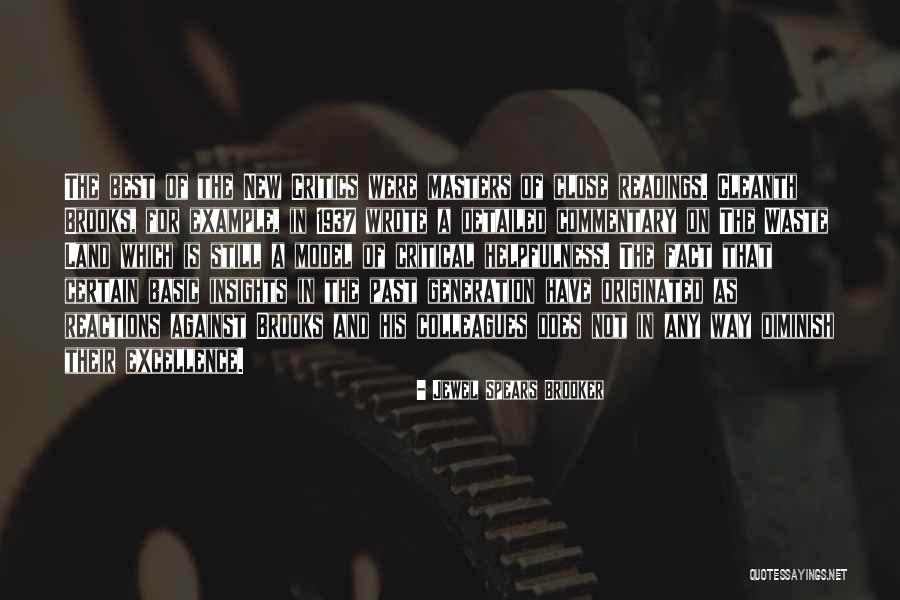
The best of the New Critics were masters of close readings. Cleanth Brooks, for example, in 1937 wrote a detailed commentary on The Waste Land which is still a model of critical helpfulness. The fact that certain basic insights in the past generation have originated as reactions against Brooks and his colleagues does not in any way diminish their excellence. — Jewel Spears Brooker
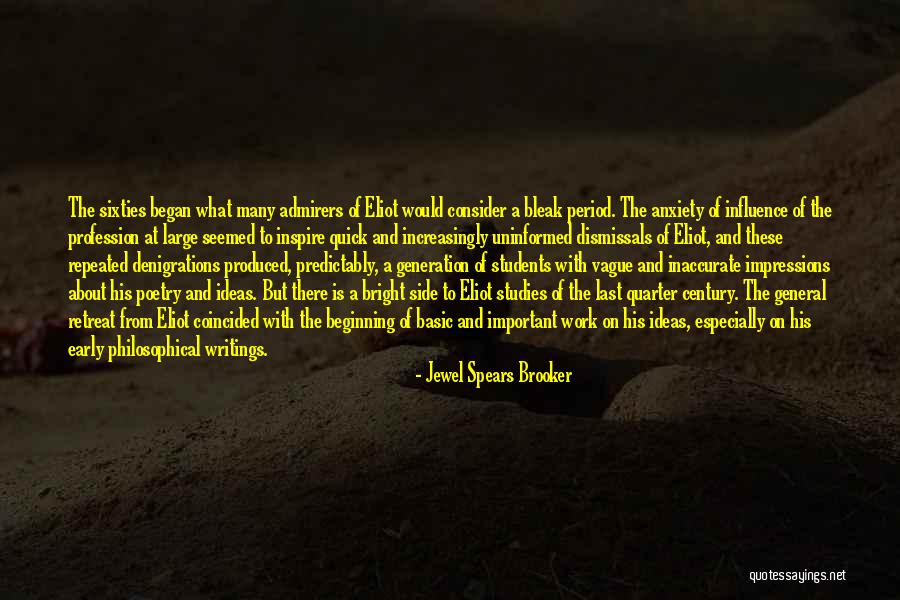
The sixties began what many admirers of Eliot would consider a bleak period. The anxiety of influence of the profession at large seemed to inspire quick and increasingly uninformed dismissals of Eliot, and these repeated denigrations produced, predictably, a generation of students with vague and inaccurate impressions about his poetry and ideas. But there is a bright side to Eliot studies of the last quarter century. The general retreat from Eliot coincided with the beginning of basic and important work on his ideas, especially on his early philosophical writings. — Jewel Spears Brooker
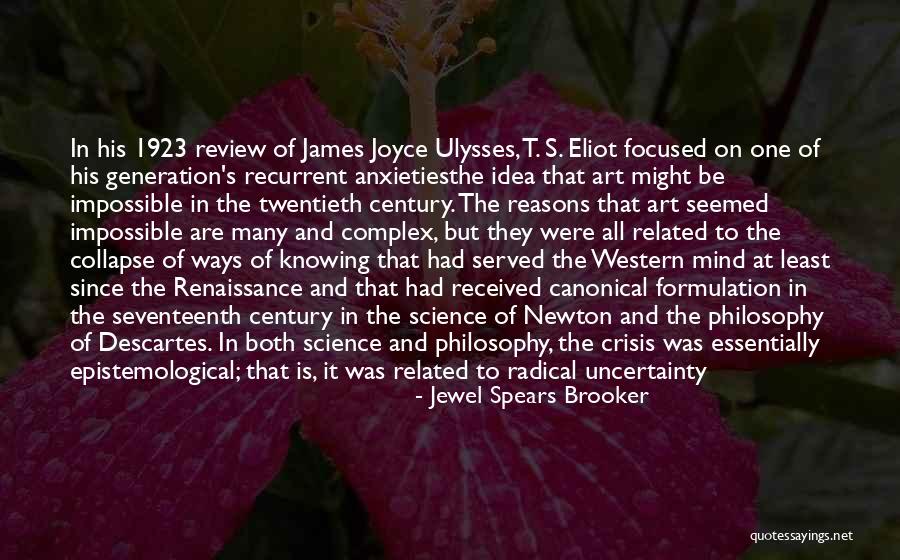
In his 1923 review of James Joyce Ulysses, T. S. Eliot focused on one of his generation's recurrent anxieties
the idea that art might be impossible in the twentieth century. The reasons that art seemed impossible are many and complex, but they were all related to the collapse of ways of knowing that had served the Western mind at least since the Renaissance and that had received canonical formulation in the seventeenth century in the science of Newton and the philosophy of Descartes. In both science and philosophy, the crisis was essentially epistemological; that is, it was related to radical uncertainty about how we know what we know about the real world. This crisis, disorienting even to specialists, was at once a cause of despair and an incentive for innovation in the arts. — Jewel Spears Brooker
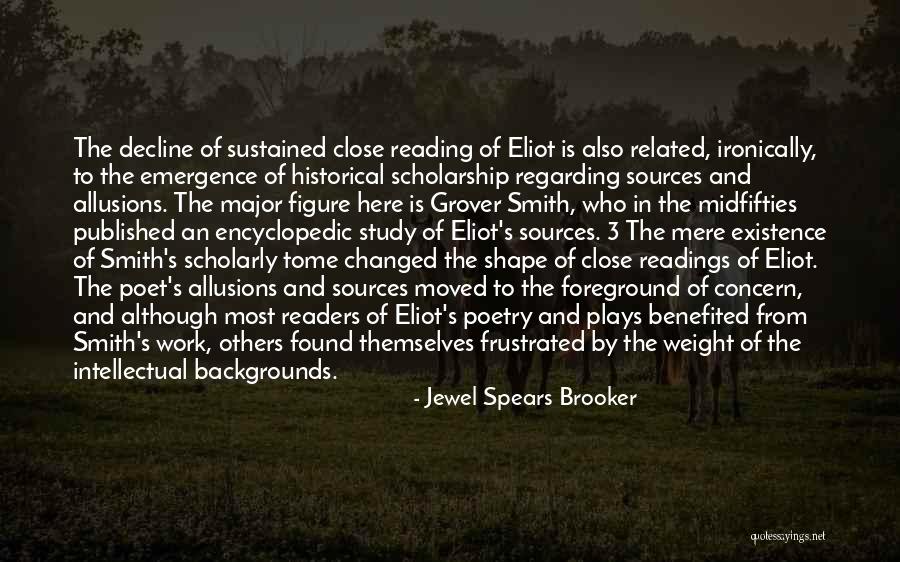
The decline of sustained close reading of Eliot is also related, ironically, to the emergence of historical scholarship regarding sources and allusions. The major figure here is Grover Smith, who in the midfifties published an encyclopedic study of Eliot's sources. 3 The mere existence of Smith's scholarly tome changed the shape of close readings of Eliot. The poet's allusions and sources moved to the foreground of concern, and although most readers of Eliot's poetry and plays benefited from Smith's work, others found themselves frustrated by the weight of the intellectual backgrounds. — Jewel Spears Brooker
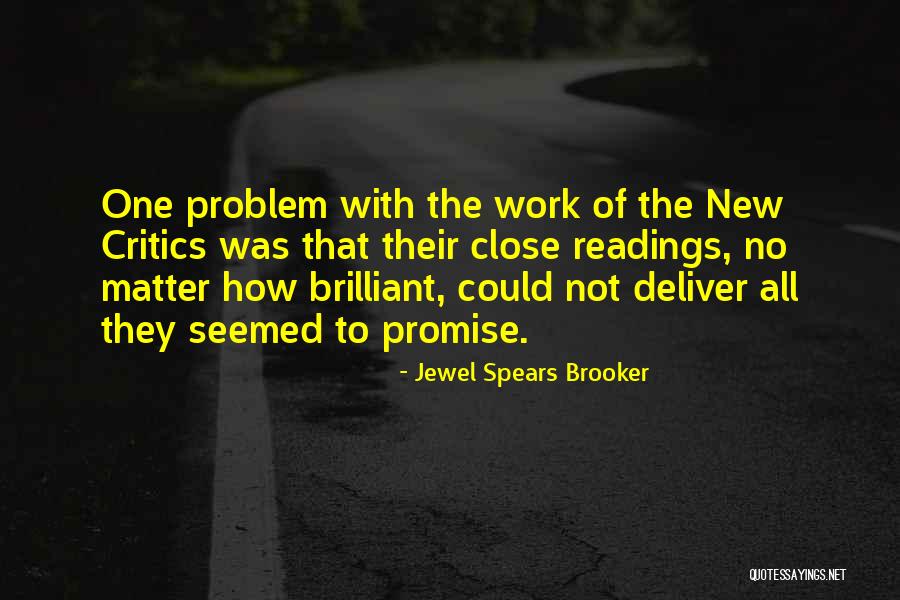
One problem with the work of the New Critics was that their close readings, no matter how brilliant, could not deliver all they seemed to promise. — Jewel Spears Brooker





